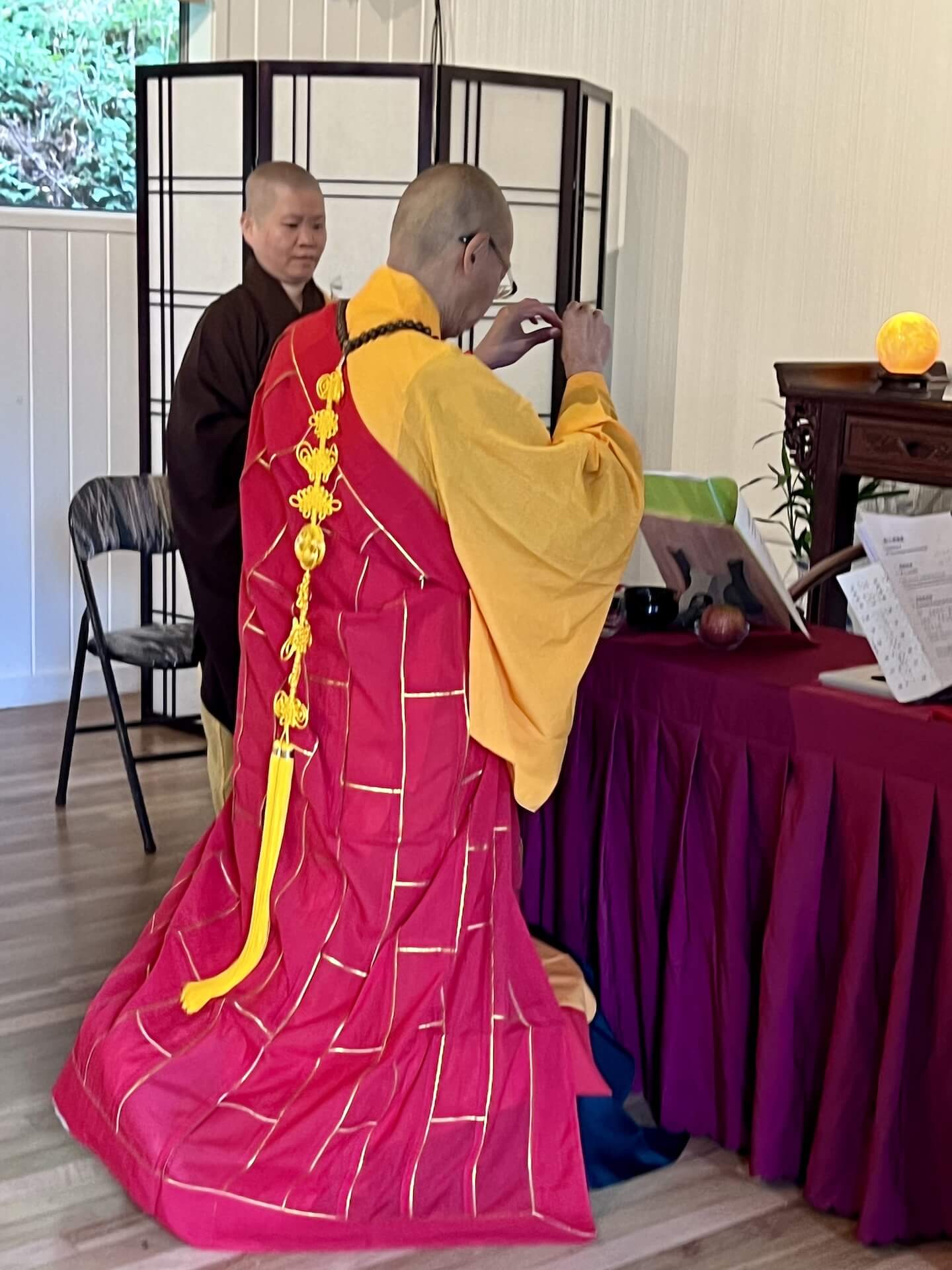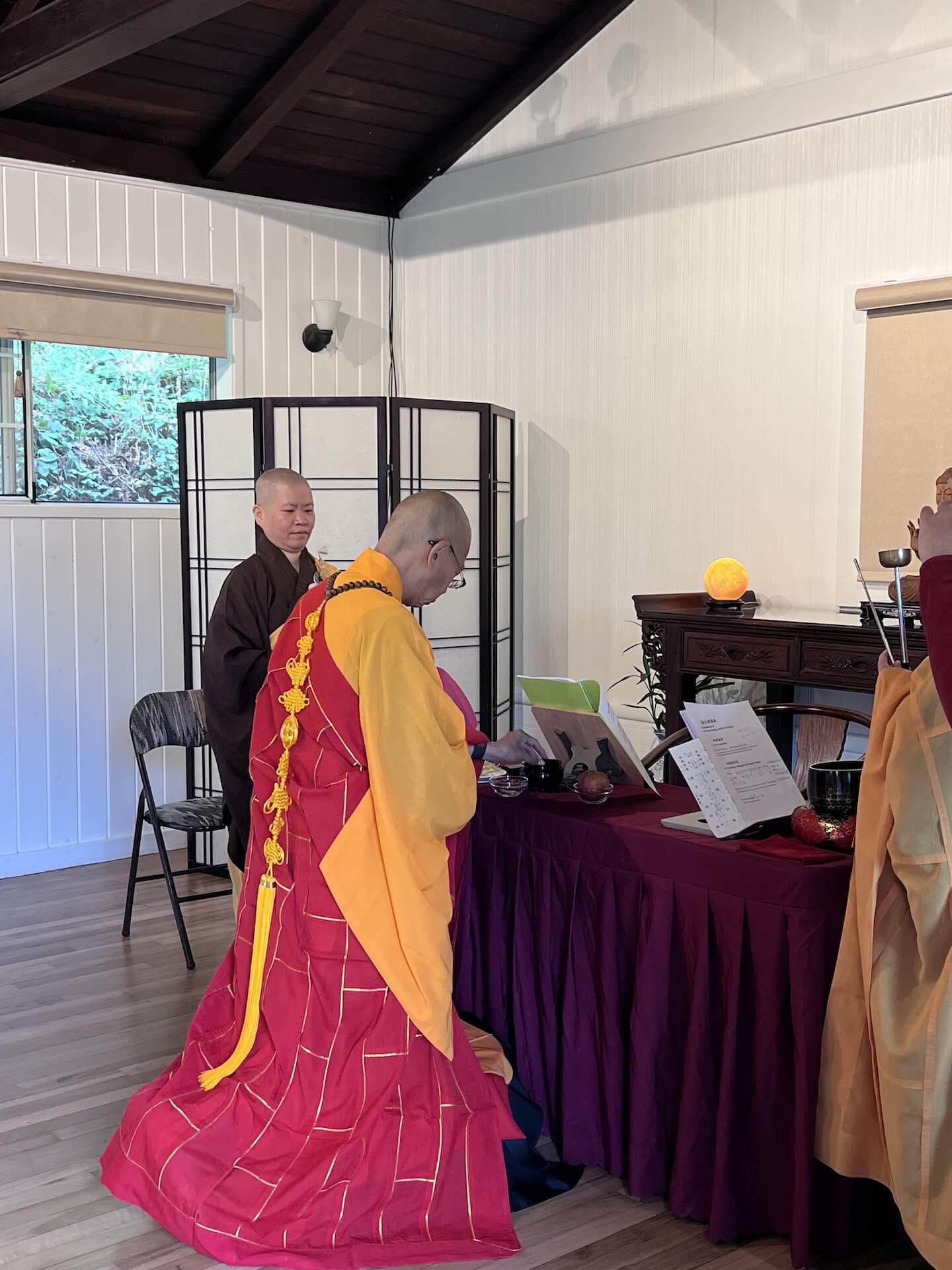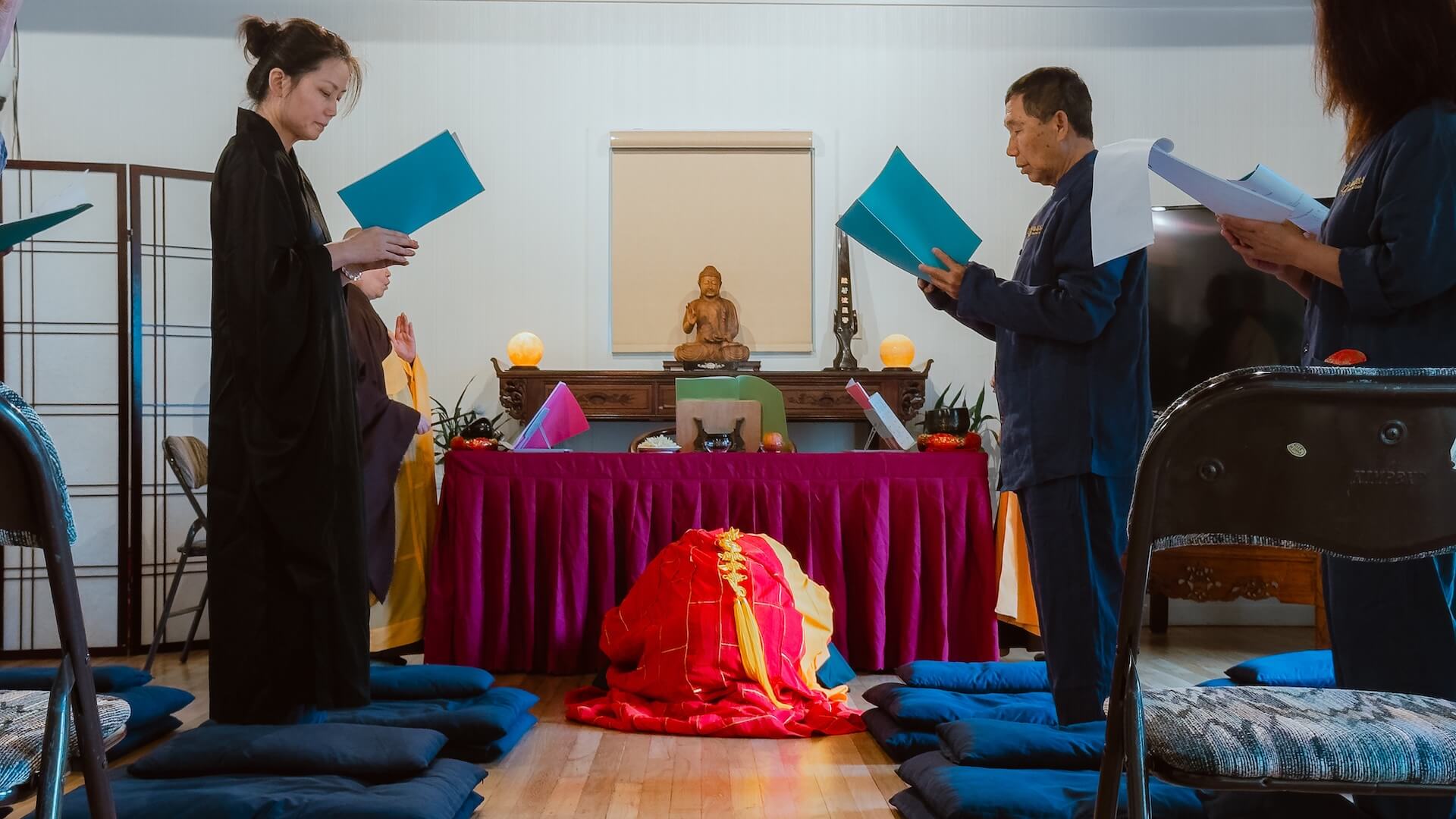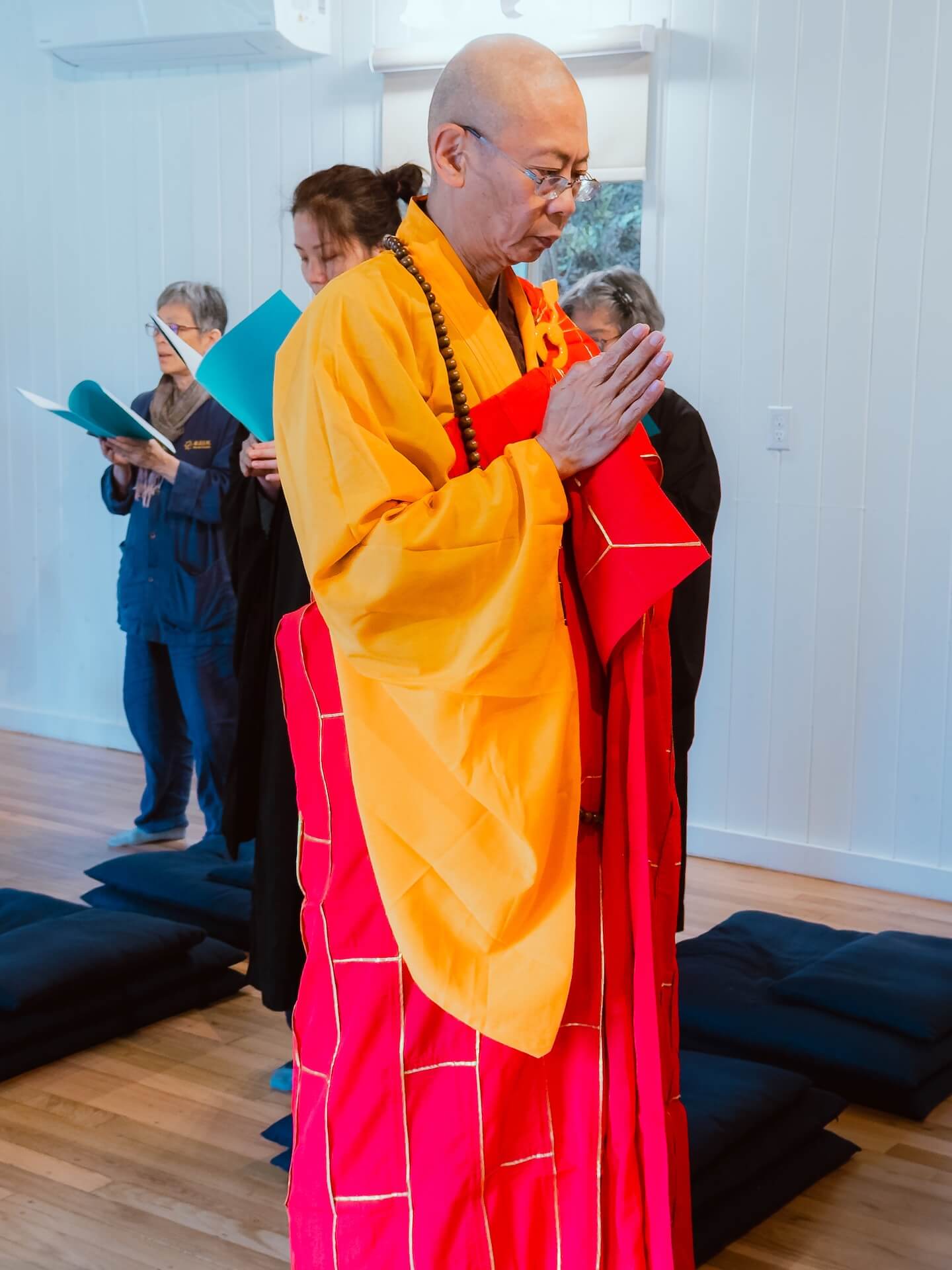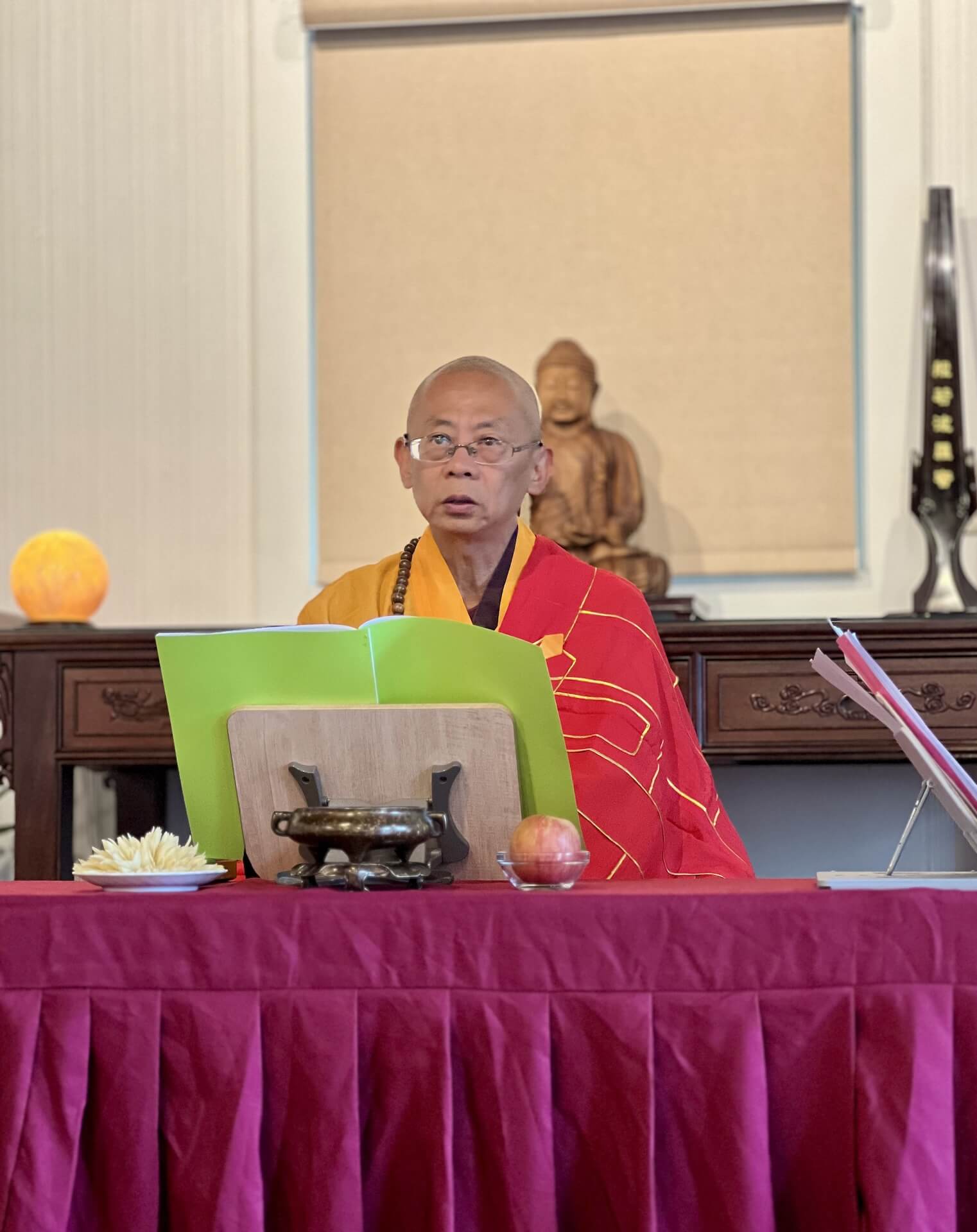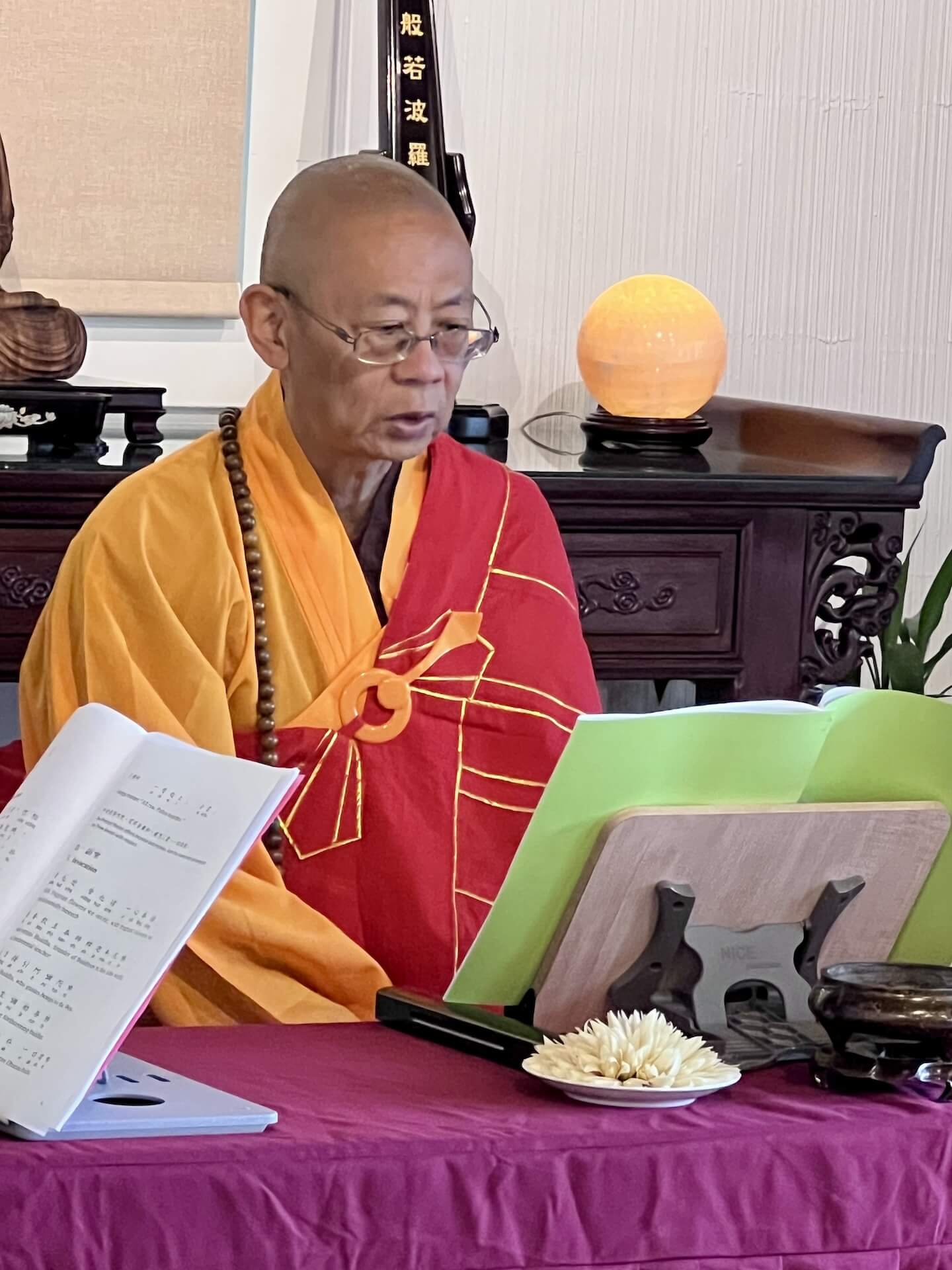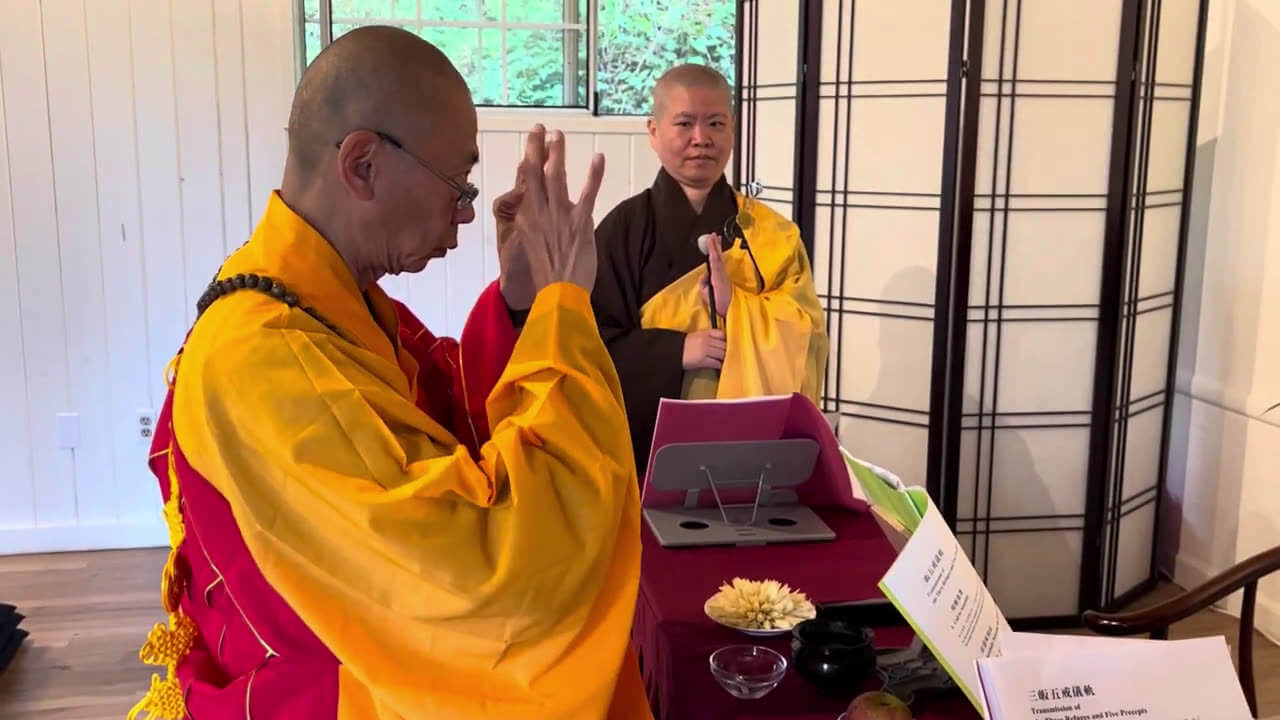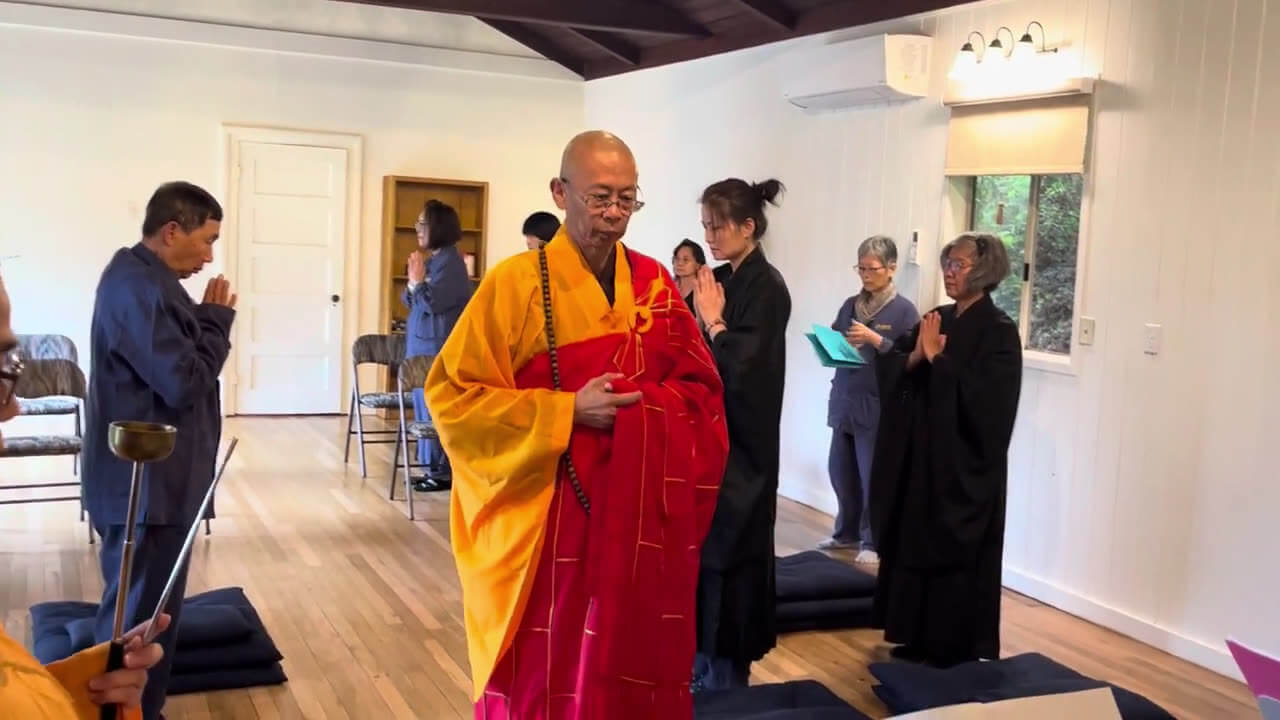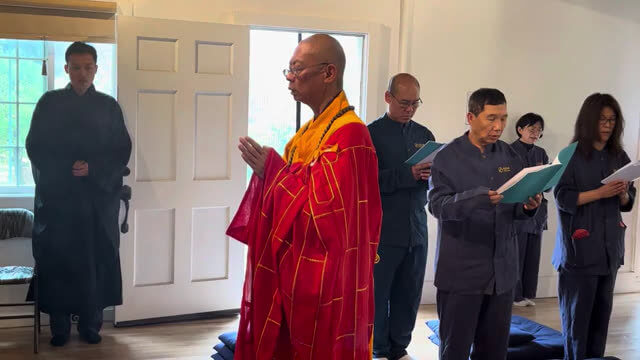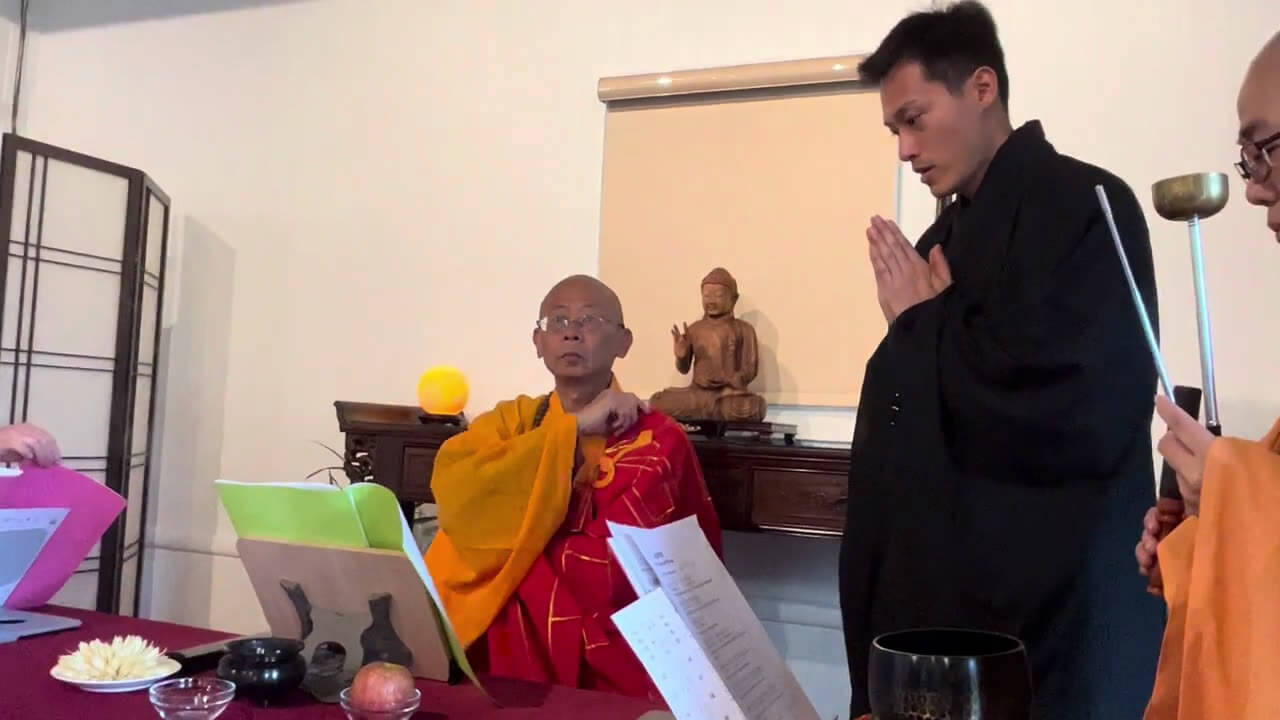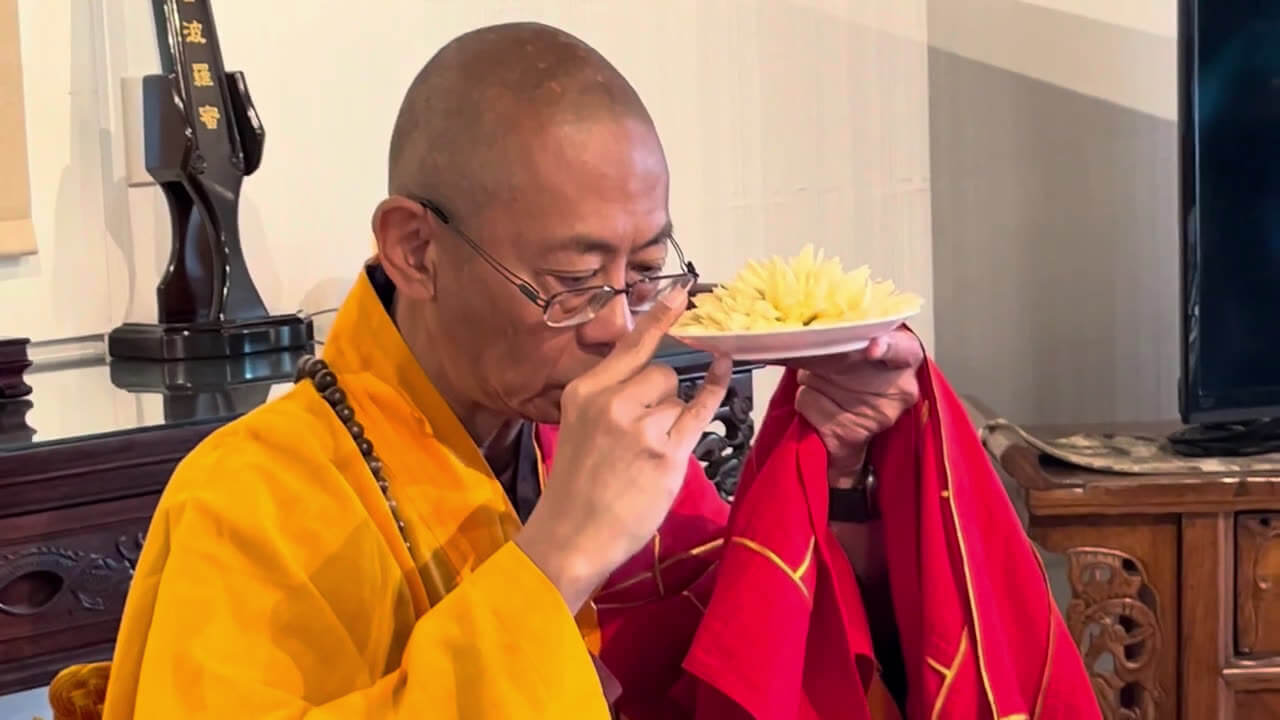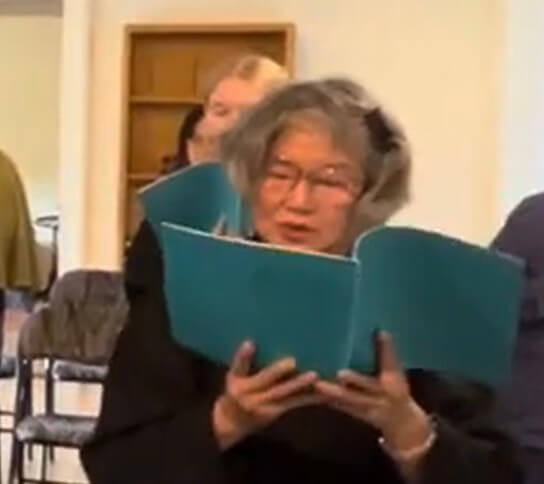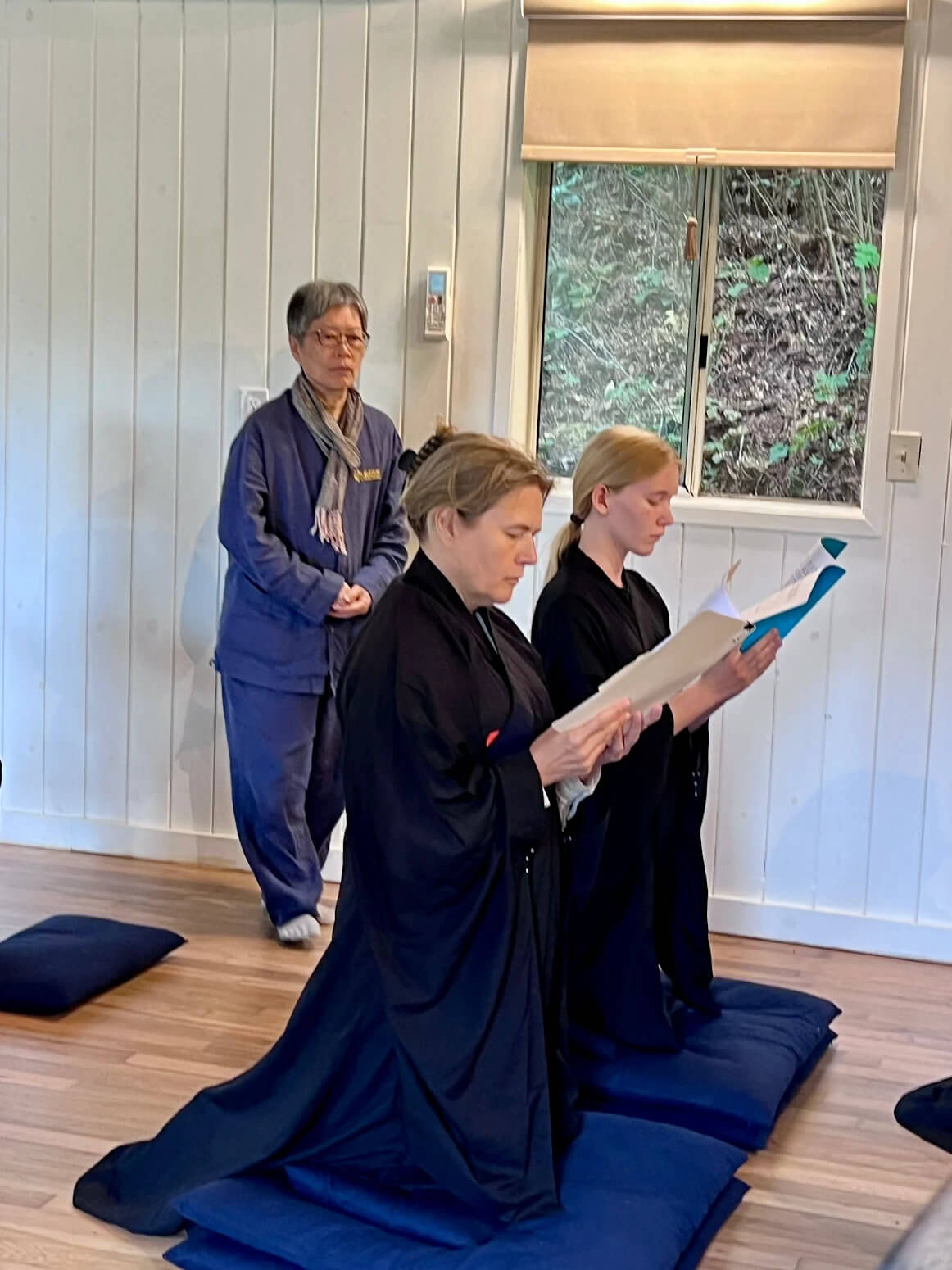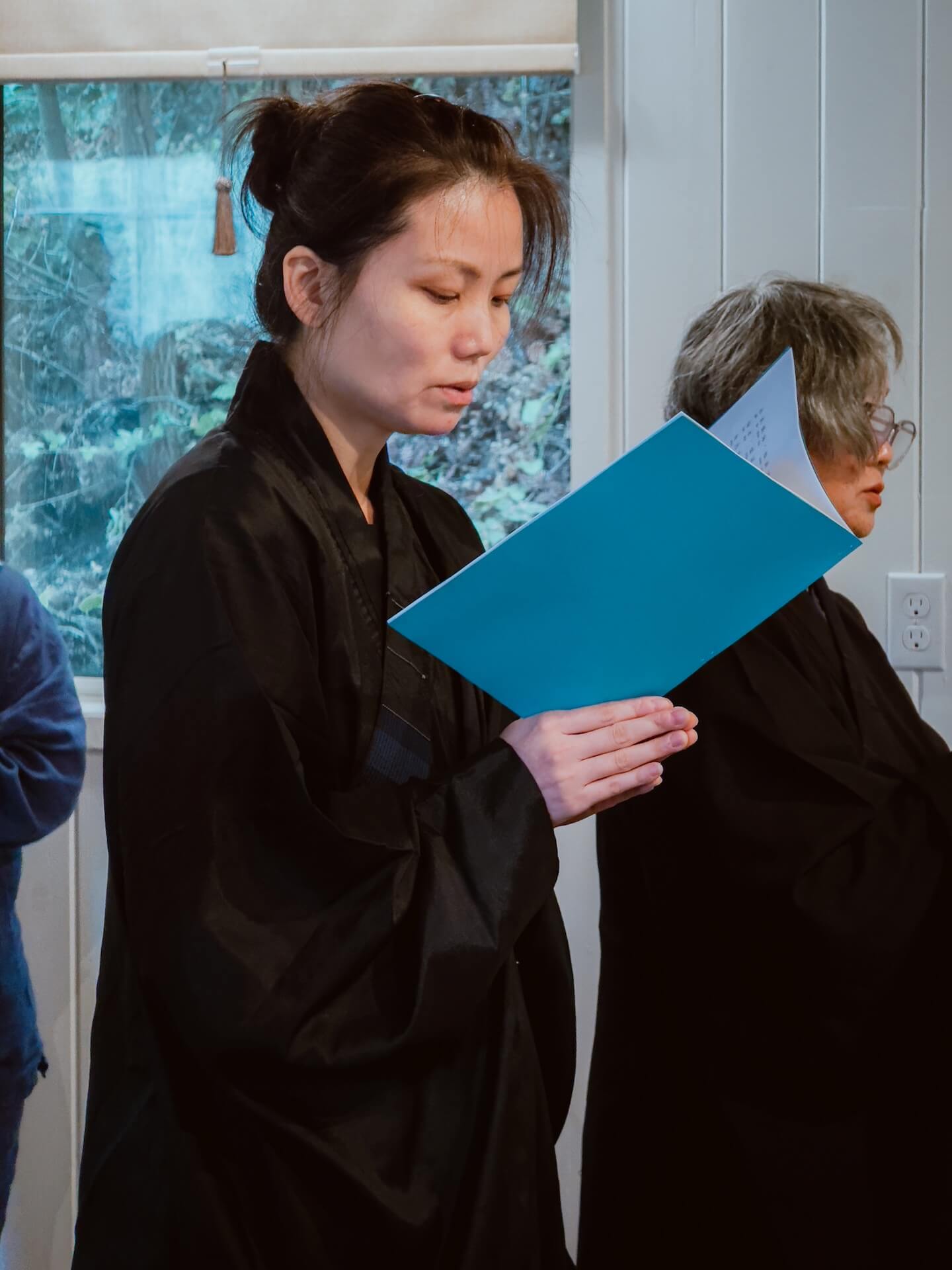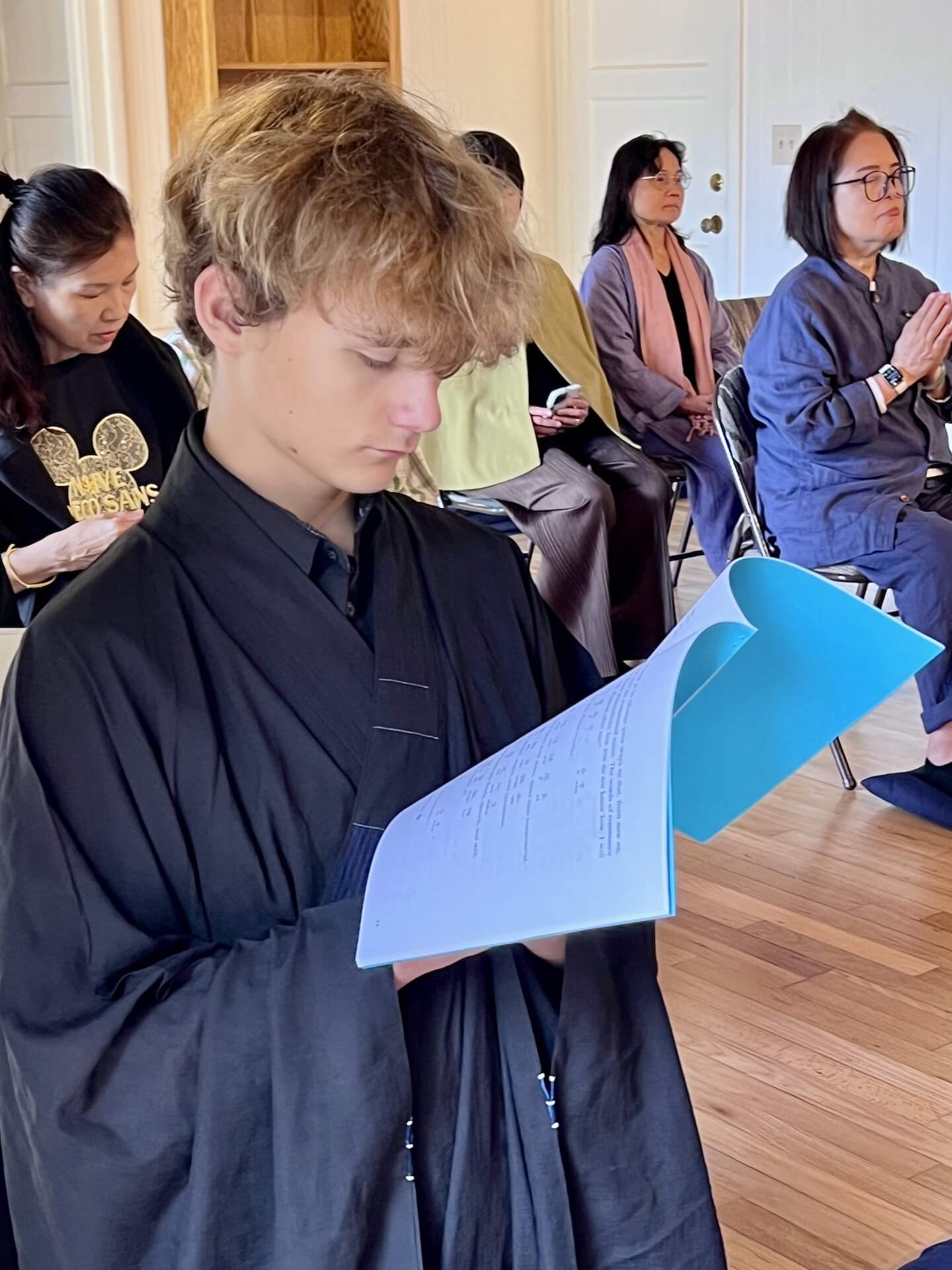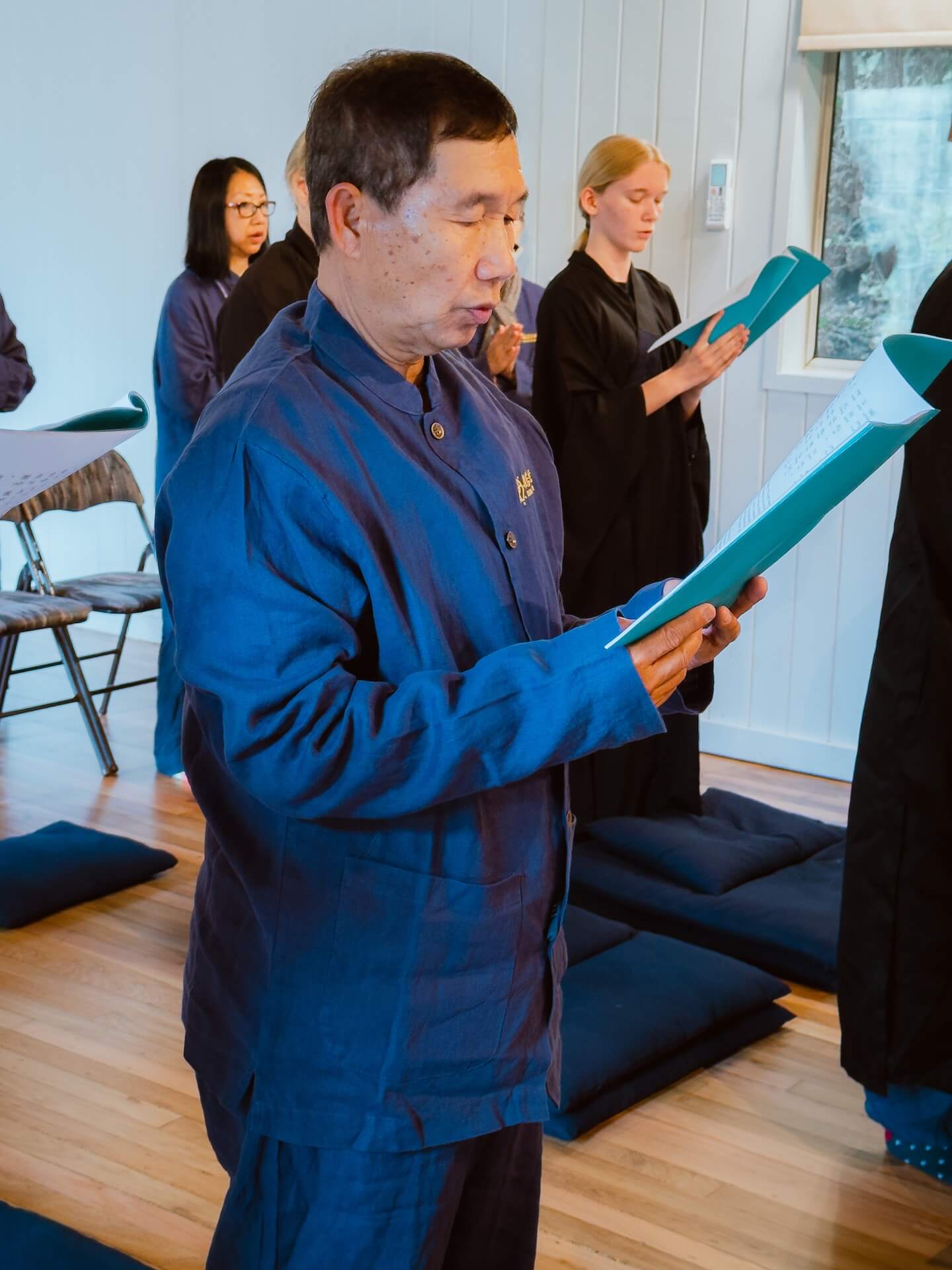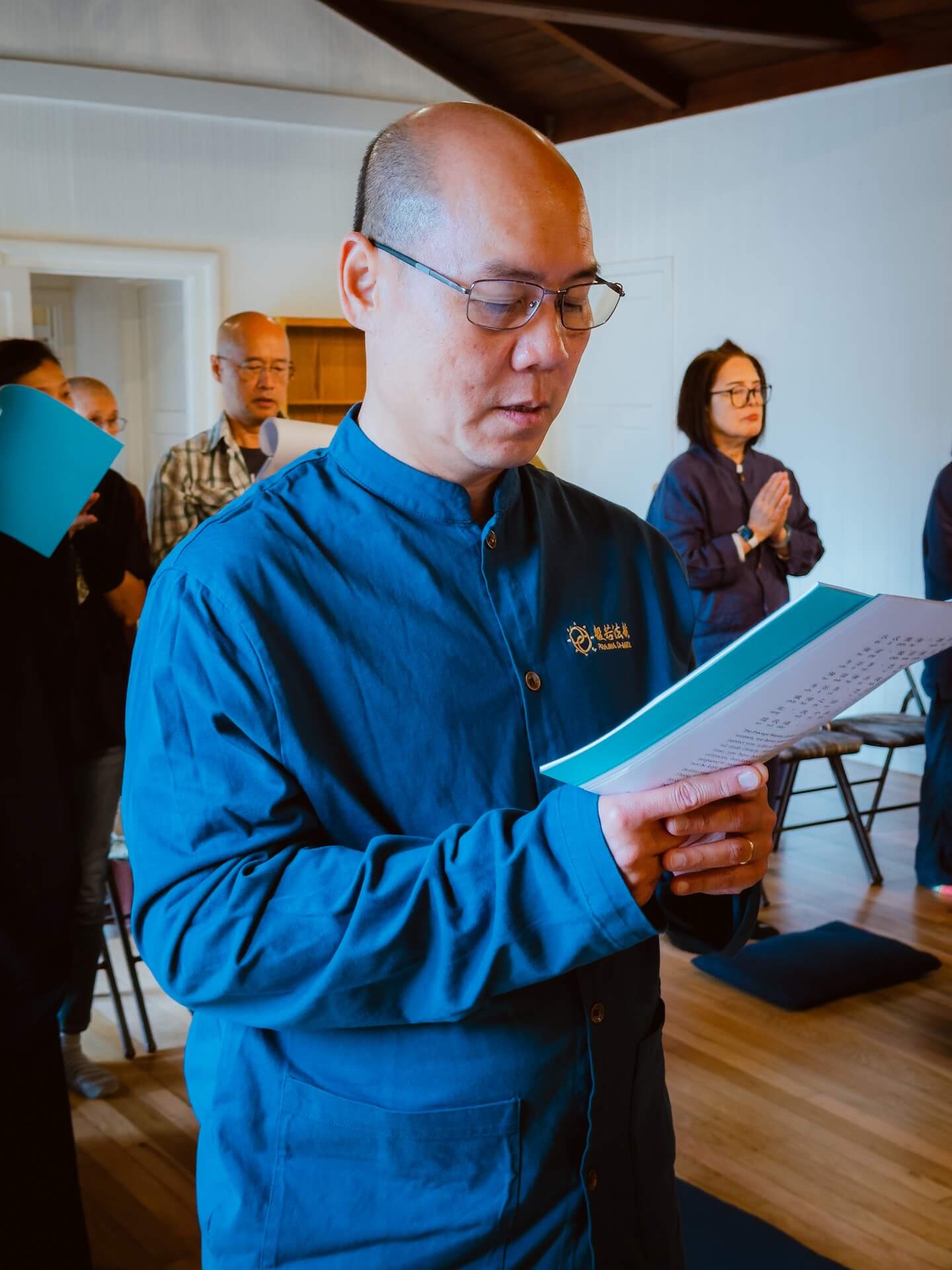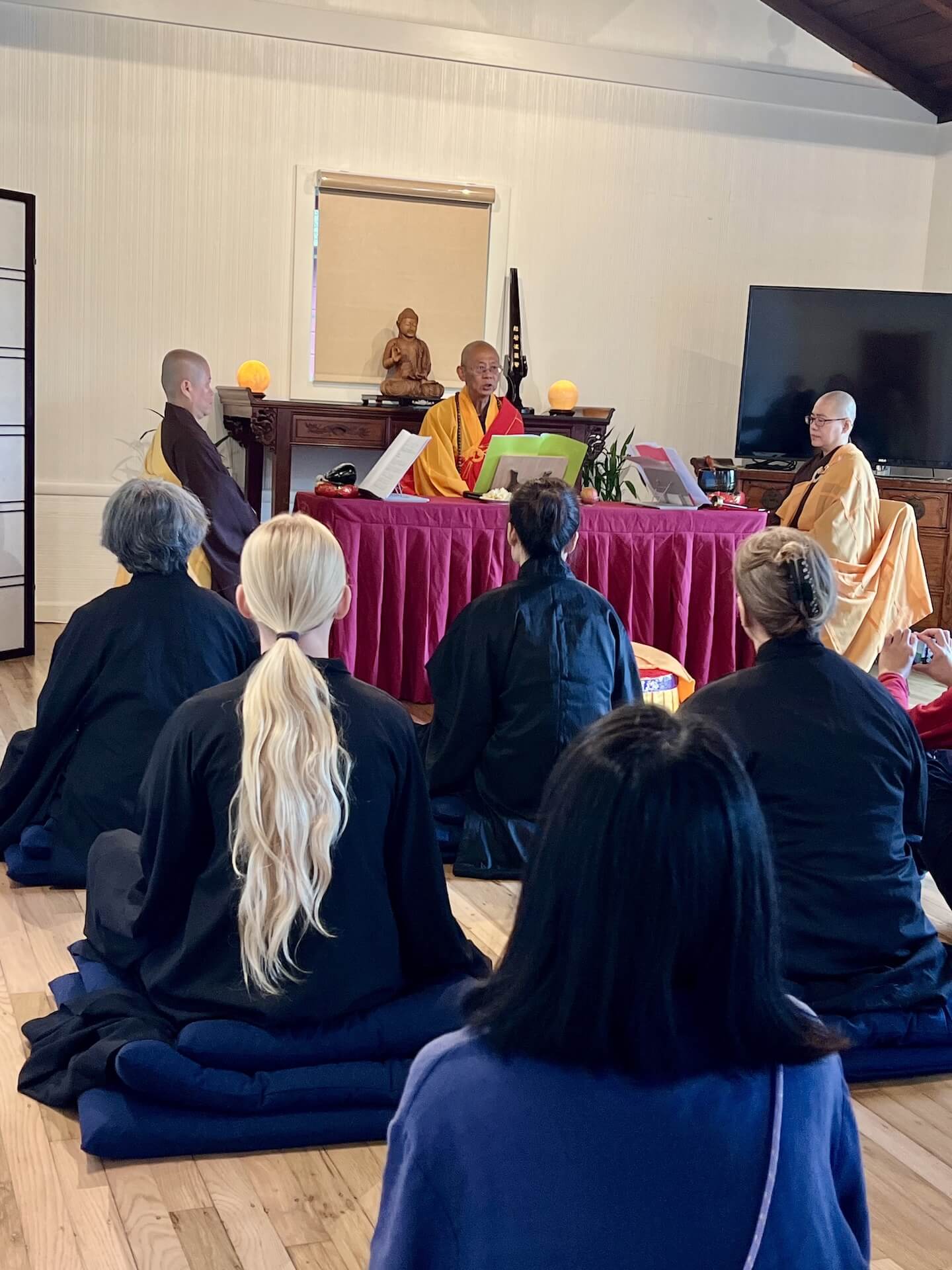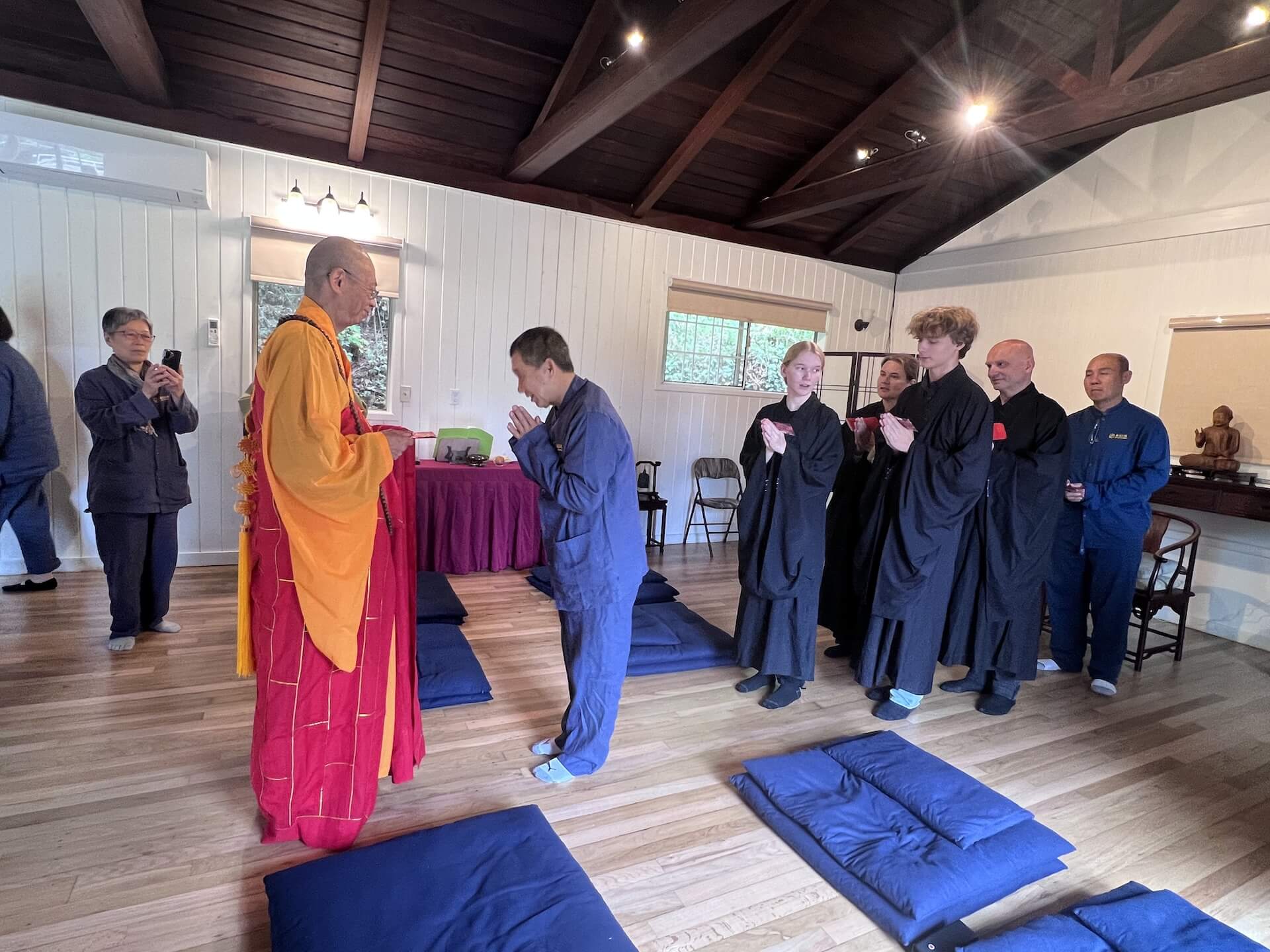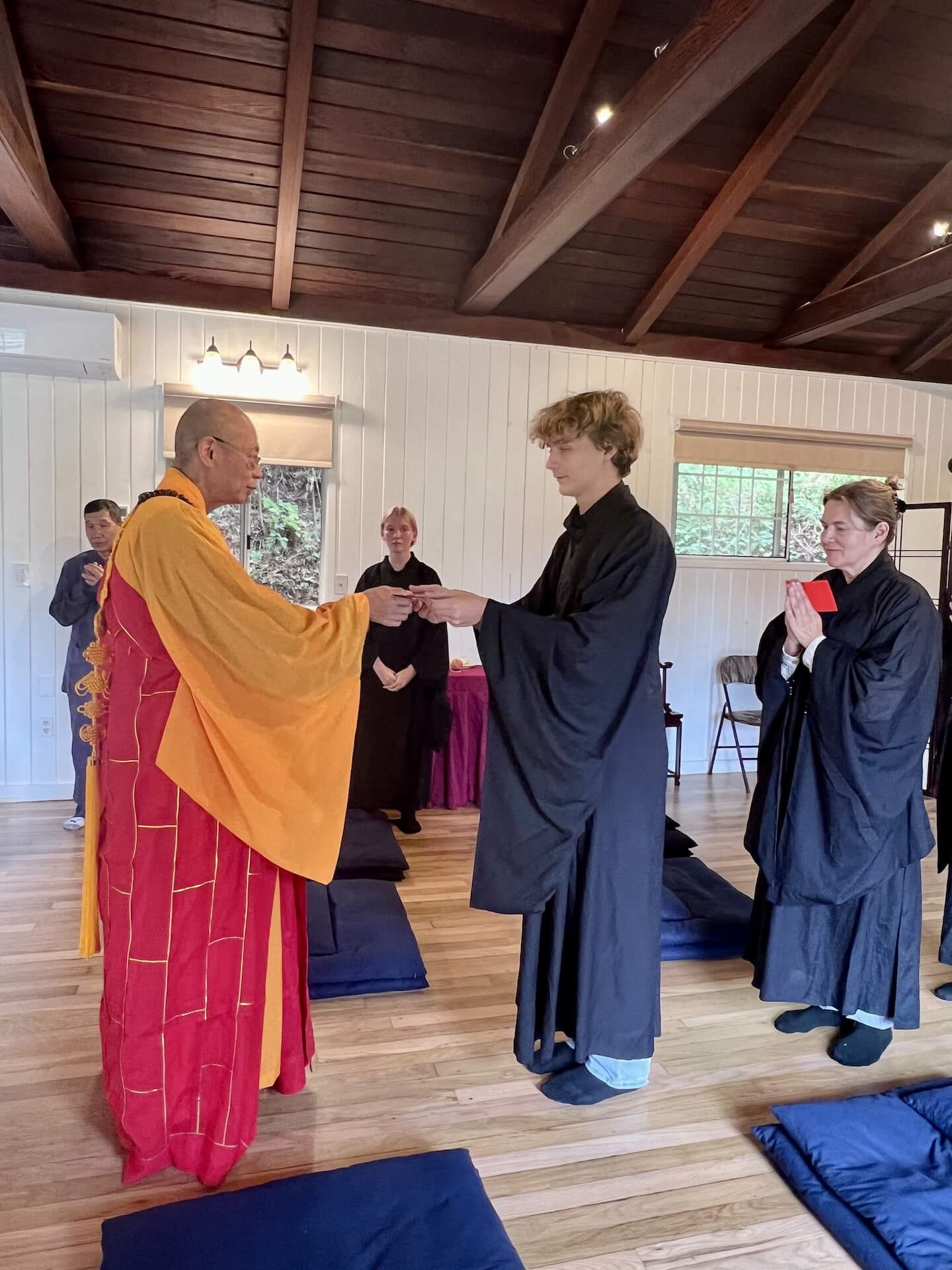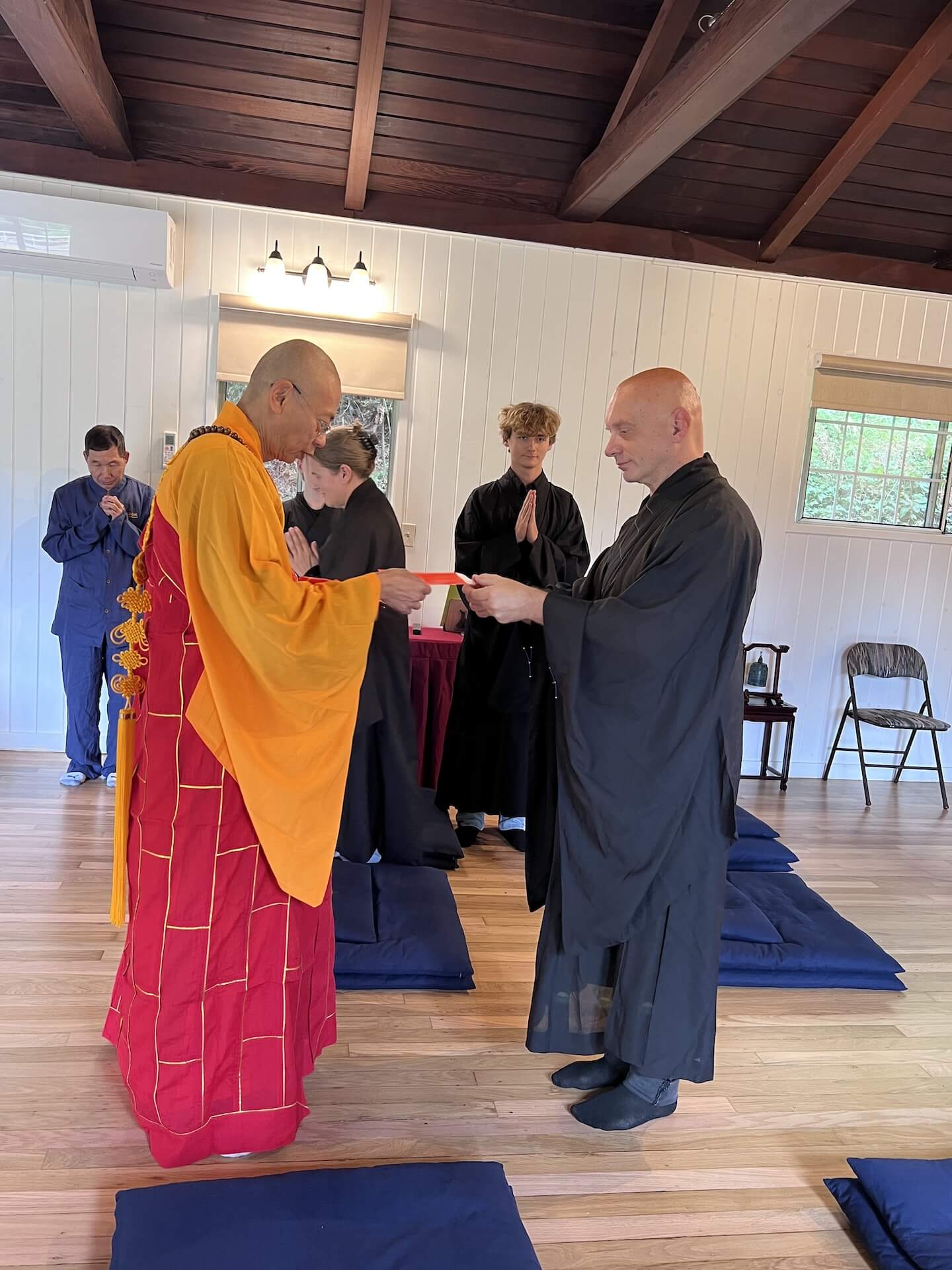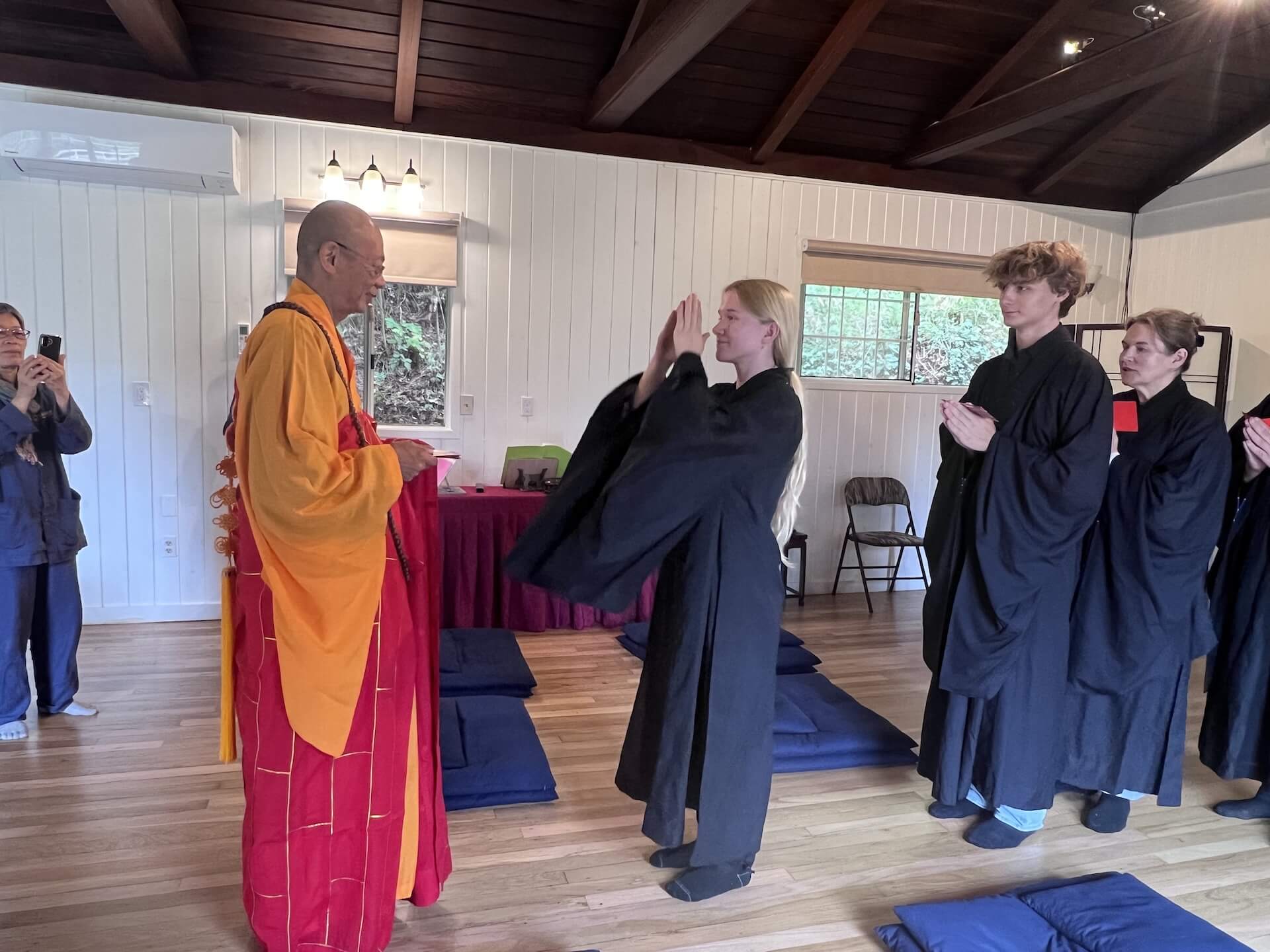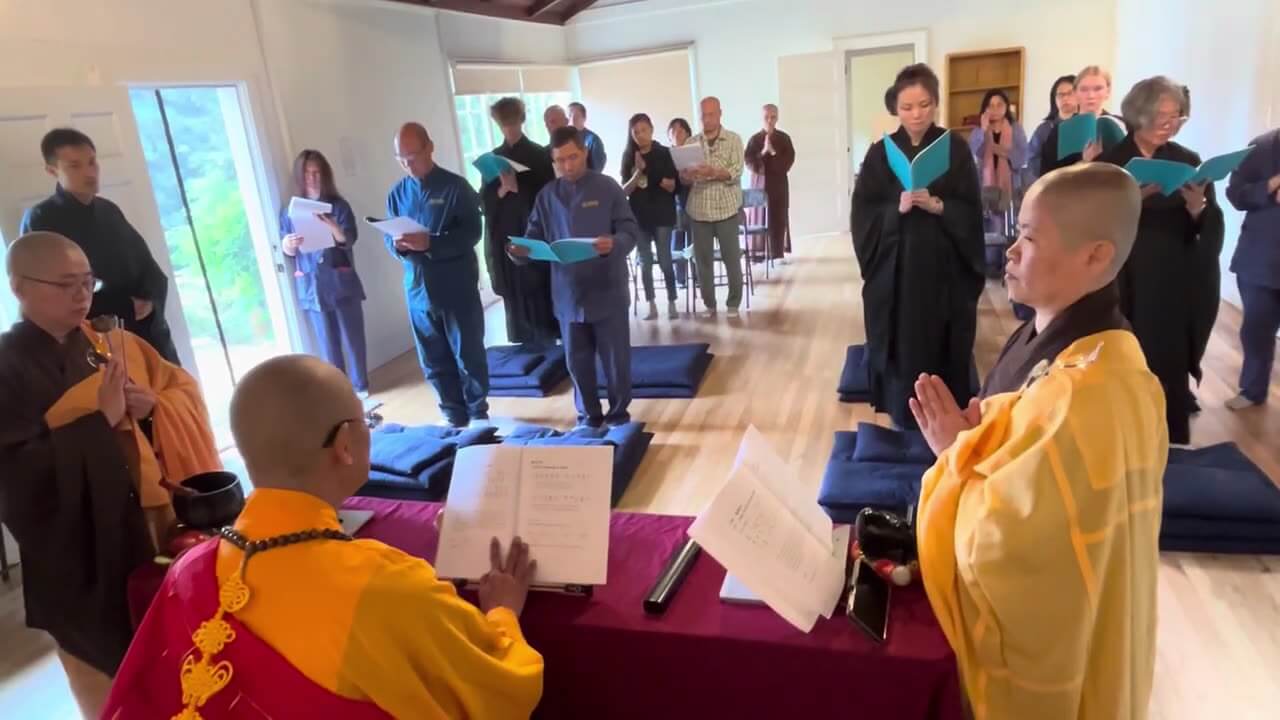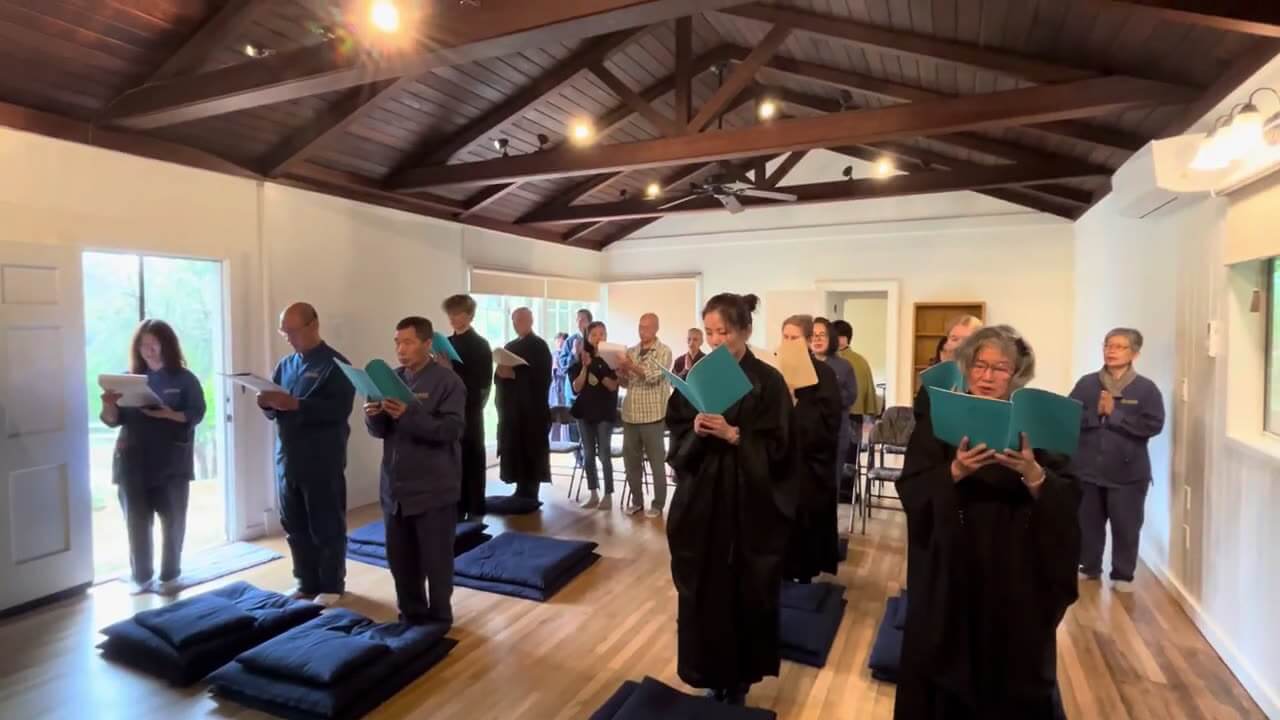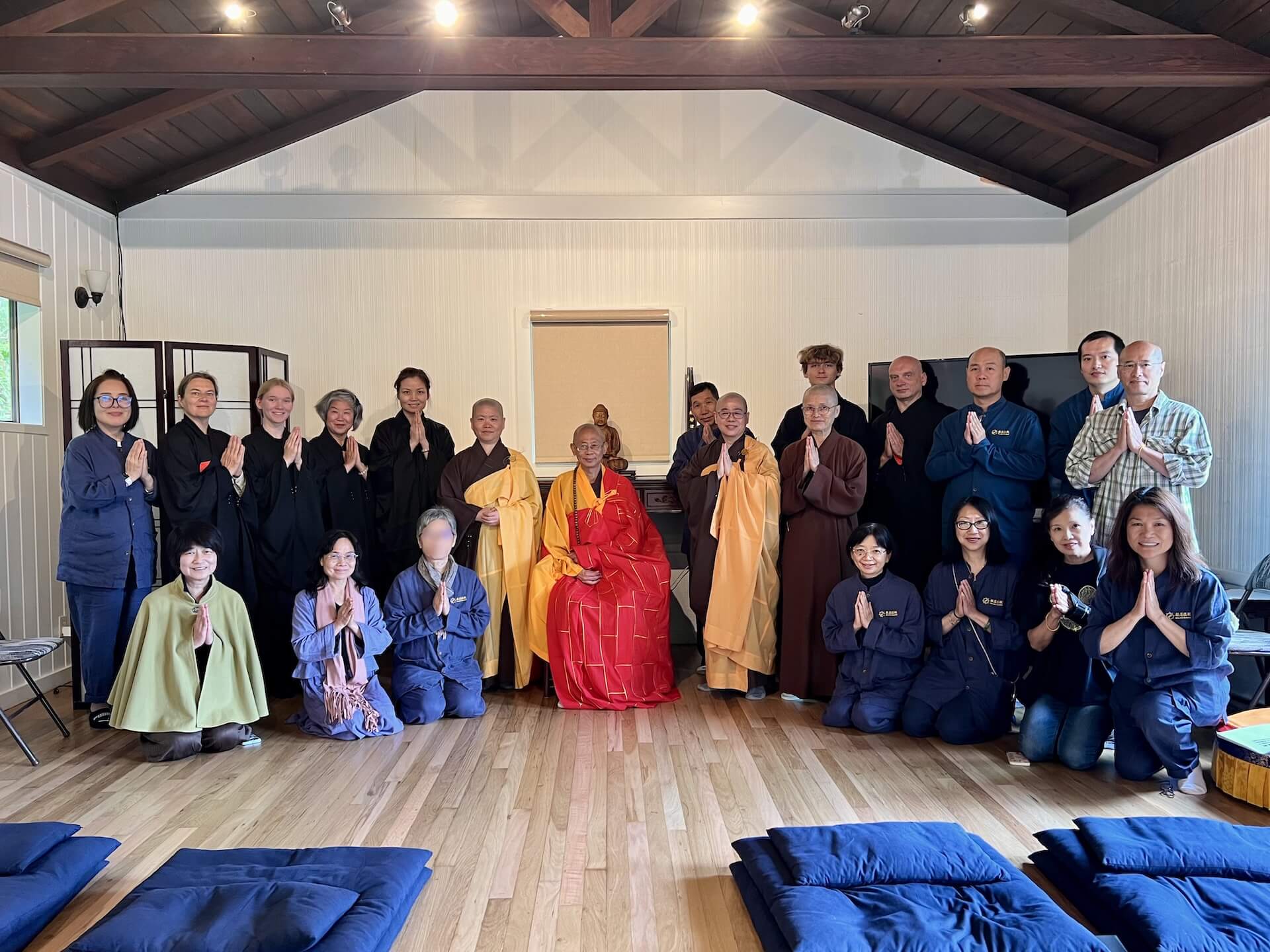【Prajna Dharma News - Ben Lomond Report】On August 16, at 10 a.m. California time, Prajna Forest Monastery solemnly held its first
Five Precepts Ceremony
in the newly completed meditation hall. The ceremony was presided over by the Abbot, Master Jian Hu, who administered the precepts to the disciples. The atmosphere was solemn and dignified, and the followers participated with pious hearts.
Before the official conferral of the Five Precepts, Precet Master Jian Hu explained the true meaning of the precepts and the importance of upholding them in a simple yet profound discourse (bilingual, in Chinese and English). He emphasized that of the three trainings—precepts, samadhi, and wisdom—precepts are the foundation of practice. For lay Buddhists, the Five Precepts are the cornerstone for purifying the body, speech, and mind, and are key to freeing ourselves from the bonds of greed, anger, and delusion.
Precept Master Jianu's Key Teachings: From Upholding Precepts to Purifying the Mind
Master Jianhu further analyzed the deeper meaning of the Five Precepts, guiding the assembly to move from a superficial understanding of the rules to a practical application in purifying the mind.
|
•
|
The First Precept: No Killing
|
◦
|
Basic meaning
: Do not harm any sentient being, including humans and animals. All sentient beings wish to live, killing causes great pain to them and will bring suffering to oneself.
|
|
◦
|
Further practice
: He encouraged vegetarianism. While not a requirement of the Five Precepts, a vegetarian diet reduces indirect killing and purifies karma. Even if you cannot be a full vegetarian, you should at least avoid buying live fish or shrimp to kill and cook.
|
|
◦
|
Deeper meaning
: Beyond direct and indirect killing, one should cultivate compassion, ultimately protecting all sentient beings, not just physically, but also through words and mental states.
|
|
|
•
|
The Second Precept: No Stealing
|
◦
|
Basic meaning
: Do not take anything that does not belong to you.
|
|
◦
|
Further practice
: Do not take advantage of others. Even if it is a legal transaction, manipulating financial instruments to take advantage of others, for example, violates the spirit of this precept.
|
|
◦
|
Deeper meaning
: Completely free yourself from the desire for personal gain and practice active giving, using your wealth and resources to benefit others.
|
|
|
•
|
The Third Precept: No Sexual Misconduct
|
◦
|
Basic meaning
: Monastics must abstain from all sexual activity for attaining liberation. For lay Buddhists, only "proper sexual conduct" is permitted, limited to a one-on-one relationship between a married couple or a committed partner. Violating of this is considered sexual misconduct.
|
|
◦
|
Further practice
: Even in a proper relationship, one should not be overly indulgent in sensual pleasures. If you have lustful thoughts or ambiguous words and actions towards someone other than your partner, it opens the door to misconduct. Couples should support each other in their Buddhist practice and grow in wisdom and merit together.
|
|
◦
|
Deeper meaning
: Eliminate desire and maintain a pure mind. One wishes to form pure, Dharma cultivation bonds with all sentient beings.
|
|
|
•
|
The Fourth Precept: No Lying
|
◦
|
Basic meaning
: Do not engage in double-tongue, harsh speech, false speech, or flowery speech.
|
■
|
Double-tongue
: Do not sow discord or act differently in front of people than you do behind their backs for your own benefit.
|
|
■
|
Harsh speech
: Do not sow discord or act differently in front of people than you do behind their backs for your own benefit.
|
|
■
|
False speech
: Do not lie for personal gain or to deceive others.
|
|
■
|
Flowery speech
: Avoid deceptive or meaningless talk.
|
|
|
◦
|
Further practice
: Your speech should be for the benefit of others, avoiding useless talk. Do not gossip about others' private matters, as even if it is true, it may cause harm. In contrast, "little white lies" told to protect someone's life or to promote harmony may be told in special circumstances without violating this precept.
|
|
◦
|
Deeper meaning
: Purify your speech to avoid creating vexations, so that every word spoken benefits sentient beings.
|
|
|
•
|
The Fifth Precept: No Intoxicants
|
◦
|
Basic meaning
: Do not consume alcohol or any substance that numbs or confuses the mind, such as drugs or tabacco.
|
|
◦
|
Further practice
: Maintain a clear and mindful awareness. The purpose of Buddhist practice is to break through ignorance. Behaving in a way that numbs the mind, like drinking alcohol or using drugs, goes against this goal. You can tactfully refuse alcohol in social situations for health reasons. Even if some drugs like marijuana are legal in certain areas, their use still violates this precept (except for serious medical needs).
|
|
◦
|
Deeper meaning
: The essence of this precept is to maintain mindfulness at all times, to the point of being able to see the true nature of both reality.
|
|
Conclusion of the Ceremony
Before the ceremony, all followers sincerely repented to cleanse past misdeeds and to receive the pure precepts with a pure body and mind. The Abbot reminded everyone that the Five Precepts are not merely rules of conduct but are the foundation for enlightenment. They guide practitioners to see life and their own minds clearly, ultimately leading to the realization of Bodhi.
After the successful ceremony, the new preceptees were moved and joyful. One new preceptee was moved to tears. Two teenage twins of Russian descent also received the precepts. To embrace pure living at such an early stage of their lives is an example for all to aspire to. Another disciple said, "After listening to the Dharma Master's teachings today, I finally understand that receiving the precepts helps us find inner purity and live a more meaningful, wise life. It's not just about receiving five precepts; it is indeed a precious gift from the buddha and bodhisattvas". Experiencing a sense of physical and mental ease, the preceptees expressed deep gratitude for Dharma Master Jiahu's compassionate guidance and the profound kindness of the Three Jewels, promising to integrate the spirit of the Five Precepts into their daily lives and practice, allowing the wisdom of the Dharma to be a light that illuminates their lives.
Wonderful Gallery

